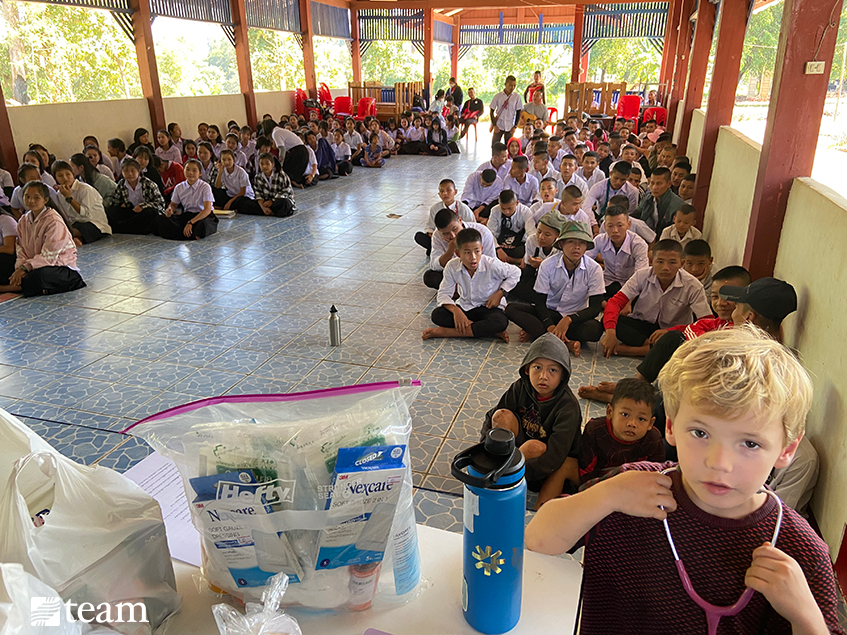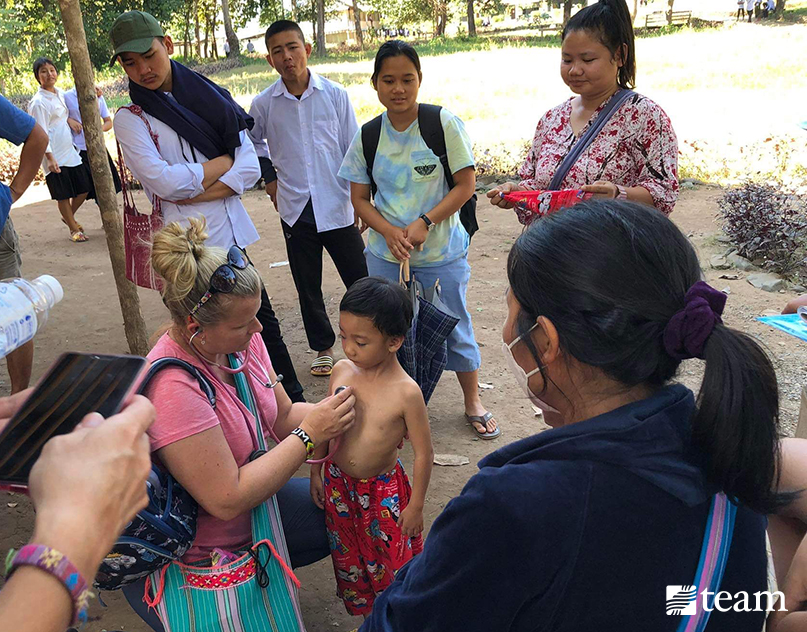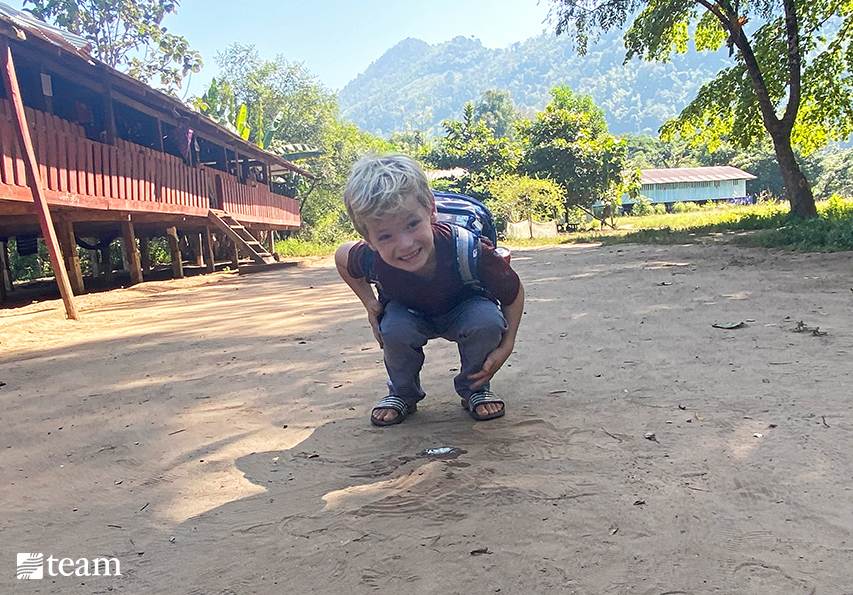
Ministry Updates
How God Connected Displaced Teenagers, a Missionary Kid and a Stick of Gum
February 11, 2022
by Suzanne Pearson

Imagine the scene: three hundred children and teens fleeing for their lives. They live in a region continually ravished by a war that began decades before they were born. Some sojourn as orphans, others sent away by desperate parents hoping for a better life for them – a life protected from the resident evil and horrendous dangers of their homeland.
God in His mercy leads this vulnerable band of young wanderers, teenagers leading and caring for the youngest among them, into the jungles of a neighboring nation. He gives them sanctuary and a new start in a place with mountains and dense vegetation to protect them, a water source to sustain them, and the will to find a future and a hope.
A Plan and A Purpose
This is the story that TEAM Global Worker Laura Jordan* and her family encountered while on assignment in Southeast Asia. Laura and her family had only been in country for a few months when they learned of the remarkable place that she refers to as a “Children’s Hostel,” where roughly 300 displaced children took shelter and began making a life there, with only a few adults helping to care for them. Trained as a nurse, Laura was eager and excited to visit the children and see how she and her family could minister to them.
When that opportunity came, Laura says she was, “as excited as a little girl on Christmas morning. My mind was racing…What if they don’t want us there? What if it’s more than I can handle? Will they know I come in love and not with a Western agenda?” The Lord quickly answered her with the peace only He can give, assuring her that He has a plan and a purpose in her journey.
So bright and early that morning, Laura and her 6-year-old son Jonah made the several-hour drive through winding, mountainous terrain to the hostel. The compound includes several structures, including dormitories, an eating hall, and a clinic. But what struck Laura the most was meeting the teenagers. “The kindness in their eyes was unexpected,” Laura says. “I could just feel the warmth and hospitality.”

The children at the hostel are building a new life after escaping war and devastation.
“Teacher, Will You Come Back?”
As Laura continued to interact with the children, she was even more impacted by their incredible courage. “These children want to learn how to care for their new community,” she notes. “They don’t have the expectation that we will come in and make everything better. These children want a future, and they are fighting for it!” Laura began training some of the older girls to care for the sick and to use the medical supplies that she brought.
A teenage girl named Lin has taken on much of the responsibility for the children’s medical care, despite no formal training. At the close of their visit, Lin asked Laura, “Teacher, will you come back? I want to learn to help my people. Today, Teacher, I have learned so much.” Laura reassured her that, yes, they would be back. “We will seek the wisdom and will of our Father and come back to serve.”

Laura uses her skills as a nurse not only to treat the children directly but also to train the older teens in basic medical care.
Planting Gum and Planting Seeds
It wasn’t just Laura that the Lord chose to weave into this story. He had work to do in and through young Jonah as well. Although Laura had reservations about bringing Jonah along, he wanted to come, as he said, because “the Son loves these kids and He wants to be their friend.” Jonah got carsick on the trip and was also feeling quite nervous when they first arrived. But as he prayed with his mom for God to help him be “brave and friendly,” the walls began to come down.
Jonah followed Laura as she went about her nursing duties, stopping her at one point to ask if he could pray for the sick children he saw all around them. Laura shares, “There, in a small hostel filled with 300+ kiddos, the Father was opening sweet Jonah’s eyes to why we were there. He was answering my petition to ‘let [my children] see why You’ve called us here.’”
Laura shares another story of how Jonah processed what he was experiencing. After he and his mom visited the children’s dorms, Jonah pulled out a piece of chewing gum and began digging a small hole to plant it in the ground. Curious, Laura asked what he was doing. Jonah explained that he wanted to make sure all the kids could have gum, and he thought if he planted a piece, it would grow, and they’d have plenty to go around! Jonah’s “gum tree” might not come to fruition, but there seems no doubt that Jonah and his mom, led by the Holy Spirit, are planting seeds that will equip the Children’s Hostel to grow and thrive physically and spiritually.

Jonah’s heart is as big as his smile, and he prays every night for his new friends.
Praying for Ten Faithful Leaders
Laura says that her “hope and prayer is that ten leaders will rise up from this hostel to take on the responsibility of learning and caring for their new community.” These ten leaders need to be “willing to follow the Son and teach others to do so as well.” She continues, “We are seeking Him daily for ways to teach that empower the children in sustainable ways and that bring glory to the Father.”
*Names have been changed for security reasons.
To learn more about how you can support the children’s hostel visit give.team.org/hostel.
Related articles


